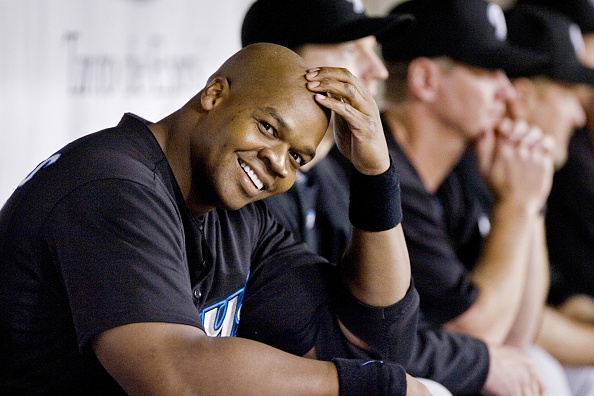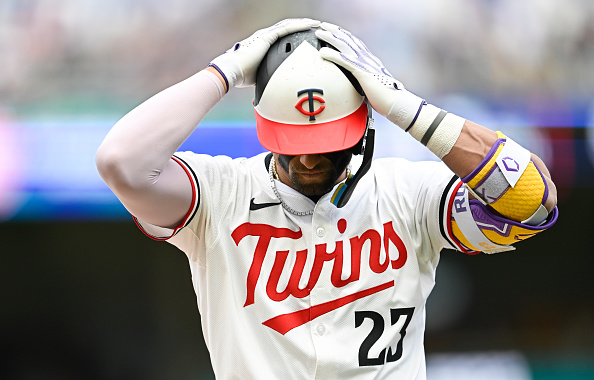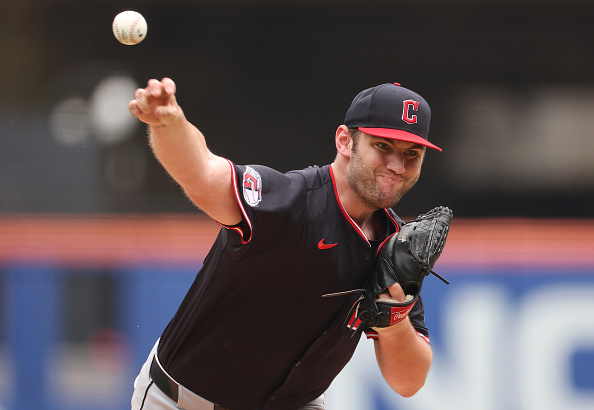Entering the new millennium, it was no secret that the Blue Jays greatest challenge was its divisional competition. The Yankees were in the midst of a dynasty, and the Red Sox were doing almost everything they could in attempting to break their eventual 86-year World Series drought.
The Blue Jays have qualified for the postseason three times in the 21st century, including two ALCS appearances in 2015 and 2016. Players like Roy Halladay, Vernon Wells, Carlos Delgado, Jose Bautista, Josh Donaldson, and Edwin Encarnacion would be the mainstays in any conversation that relates to constructing an all 2000’s Blue Jays team. But there are a number of forgotten individual seasons that deserve recognition as well.
Troy Glaus (2006)
Prior to the start of the 2006 season, the Blue Jays faced as high of expectations that there had been up until that point for the franchise in the 2000s. Glaus was one of four offseason acquisitions that fueled the idea that Toronto would be a playoff team in the ultra-competitive American League East. Along with A.J. Burnett, B.J. Ryan, and Lyle Overbay, general manager J.P. Ricciardi pulled the trigger on a trade with the Arizona Diamondbacks to acquire the third baseman Glaus.
The native of Tarzana, California had been a three-time all-star, two-time silver slugger, and World Series champion with the Angels at the time of the trade. With the Blue Jays in ‘06, Glaus launched 38 home runs, while driving in 104. Despite not making the playoffs, Toronto finished the season with an impressive 87-75 record一a mark that would have been good enough for a postseason appearance if the team played in the N.L. The aforementioned Delgado and Wells were the only other Blue Jays in the 2000s prior to ‘06 to match the offensive output seen by Glaus in his first year with the squad.
Frank Thomas (2007)
When you think of the remarkable career of “The Big Hurt”, imagining him playing with the Blue Jays might be the last thing you do. But Thomas did in fact spend more than a year north of the border and cemented himself as a Hall of Famer in the process.
On June 28, 2007, Thomas launched a three-run shot off the Twins’ Carlos Silva to join the exclusive 500 home run club. The native of Columbus, Georgia is the first and only Blue Jay to reach the milestone while playing with the team, and the only player in franchise history to have over 500 career home runs一 no matter which team it was hit with. Ironically enough, Thomas’ 500th homer was hit on the same day as Craig Biggio got his 3000th-career hit.
On top of making history while playing with the Blue Jays, Thomas managed to drive in 95 runs, while adding 26 long-balls in ‘07. As a 39-year old, he led the team in both categories during the campaign.
Aaron Hill (2009)
During some subpar years of Blue Jays baseball, Hill became one of the faces of the franchise, along with Halladay and Wells. The second baseman turned in a career-year in 2009, while appearing in the all-star game for the first time.
2009 was a memorable year in Blue Jays land for the sole reason that it was Halladay’s last with the team. It was the end of an era for a pitcher that is considered to many as the franchise’s best hurler. Anticipation towards an eventual trade of Halladay dominated the storylines all year for a team who finished fourth in the A.L East and only won 75 games. As a result, it was Hill’s all-star performance that was overlooked. The native of Visalia, California batted .286, hit 36 long balls, drove in 108, and finished 12th in A.L MVP voting.
While playing steady defense at second and reaching base 33 percent of the time, Hill was instrumental in preventing the Blue Jays from being a complete bottom-feeder in the A.L.
Ricky Romero (2011)
Romero’s career is a fascinating one to investigate, but it was in 2011 when he reached the height of his individual success. The left-handed pitcher was one of two Blue Jays selected to represent the American League at the 2011 All-Star game in Phoenix一the other being Jose Bautista.
Romero was a workhorse on the mound for Toronto in ‘11, starting 32 games and tossing 225 innings. For both the 2011 and 2012 seasons, Romero got the call to be the Blue Jays opening day starting pitcher. But it was in the former where the hurler pitched like the ace the team had hoped he would be for the rest of the decade. While finishing 10th in AL Cy Young voting, Romero posted a 2.92 ERA and tossed four complete games.
He was in fact the ace and produced a season that had not been seen by a Toronto pitcher since the Halladay era. The optimism for Romero going forward from a media, front office, and public perspective was incredibly high, and it was because of his performance in 2011 that made Blue Jays fans believe they had themselves a true number-one starter.
Marco Estrada (2015)
Estrada was the opening day starter for the Blue Jays in 2016 and was selected to the all-star game that same year, but it was his performance the year before that often gets overlooked due to the offensive firepower that was seen all across the roster. The native of Sonora, Mexico played much above what was expected of him in 2015, after being acquired from the Brewers in exchange for Adam Lind in November of 2014. He posted a 3.13 ERA while winning 15 games for Toronto in the year where the team qualified for the postseason for the first time in 22 years. Estrada’s ERA mark was the sixth-best in baseball that year. More impressively, however, he led the league in opponent’s batting average, out-dueling counterparts like Jacob deGrom and Max Scherzer.
The right-handed pitcher was baseball’s best-kept secret during the regular season, but it was his playoff masterpiece in game five of the ALCS against the Royals that single-handedly earned him a spot on this list. Facing a 3-1 series deficit, Estrada led the Blue Jays to a win on the mound in a must-win game. He pitched 7.2 innings while facing the minimum. It was the longest an American League pitcher had gone when facing the minimum since Don Larsen’s perfect game in the 1956 World Series.
Check us out on our socials:
Twitter: @PTSTNews and @TalkPrimeTime
Facebook Page: Prime Time Sports Talk
Join our Facebook Group: Prime Time Sports Talk
Instagram: @ptsportstalk
Follow Logan Lockhart on Twitter @lgllockhart
Main Image Credit: Embed from Getty Images







